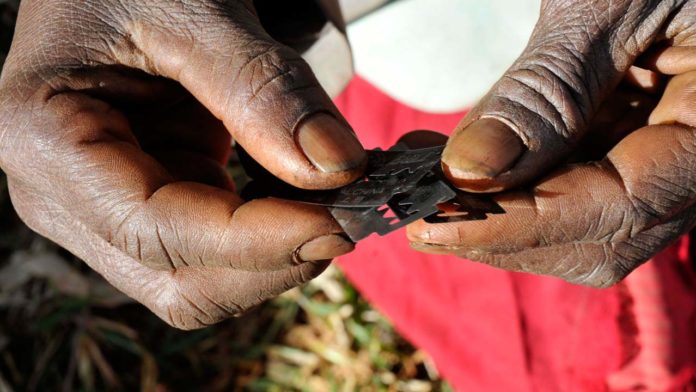By: Christian Conteh
Another tragic loss of life has occurred in the West African Country of Sierra Leone due to the age-old traditional practice of female genital mutilation (FGM). This has served as a rallying call for women’s rights organisations across the country and around the world to call for laws that will put an end to the practice for good.
The campaigners have together co-signed an open letter calling on the Government of Sierra Leone to criminalize FGM and protect women and girls from this harmful practice.
The story indicates that on 20th December 2021, 21-year-old Maseray died from acute bleeding and shock a day after being subjected to FGM, an allegation that was confirmed by the post-mortem carried out on 14th January.
‘It is now widely acknowledged that [FGM] functions as a self-enforcing social convention or social norm. In societies where it is practised it is a socially upheld behavioural rule. Families and individuals uphold the practice because they believe that their group or society expects them to do so. Abandonment of the practice requires a process of social change that results in new expectations on families.’ -The General Assembly of the United Nations
Shortly after Maseray’s death, a 15-year-old girl was admitted to hospital for urgent treatment after suffering serious complications due to FGM. These are not isolated incidents in Sierra Leone. Many women and girls in recent years have died or experienced devastating harm as a result of FGM.
Sierra Leone has one the highest FGM prevalence rates in Africa, with 83% of women and girls aged between 15 and 49 years having undergone the procedure according to the 2019 Demographic Health Survey.
Female genital mutilation (sometimes called female genital cutting and female genital mutilation/cutting) (FGM) is defined by the World Health Organization (WHO) as comprising ‘all procedures involving partial or total removal of the external female genitalia or other injuries to the female genital organs for non-medical reasons.’
FGM is a form of gender-based violence and has been recognised as a harmful practice and a violation of the human rights of girls and women. At least 200 million girls and women alive today have had FGM in the 28 African countries where FGM is practised.
FGM has been branded and internationally acknowledged as a gross human rights violation. It involves procedures that see the partial or total removal of the external regions of the female genitalia for non-medical reasons.
FGM is known to have no health benefits and has serious, immediate and long-term physical and psychological health consequences, which can be severe, including post-traumatic stress disorder, depression, anxiety, and reduced sexual desire or satisfaction. Babies born to women who have experienced FGM suffer higher rates of neonatal death and mothers can experience obstetric complications and fistulae. The right groups in Sierra Leone have called for an urgent enactment and enforcement of a comprehensive anti-FGM law in an open letter.
The signatories of this open letter call on the Government of Sierra Leone, H.E. President Julius Maada Bio and Attorney General Mohamed Lamin Tarawalley Esq. to urgently enact a law that explicitly bans FGM for all ages, put in place adequate measures to protect against and eliminate FGM and give survivors and the families of victims a means to access justice.
The signatories include A Girl At A Time Sierra Leone, A Well Informed Adolescent (AWA) Initiative (Nigeria), Aberdeen Women’s Centre (Scotland), African Women Rights Advocates (regional), Amazonian Initiative Movement (AIM) (Sierra Leone), AMFE (Association pour le Maintien des Filles à l’École) (Senegal), Arab Women Organization of Jordan (AWO) and Association Beogo-Neere (Burkina Faso) among several other organisations the world over.









